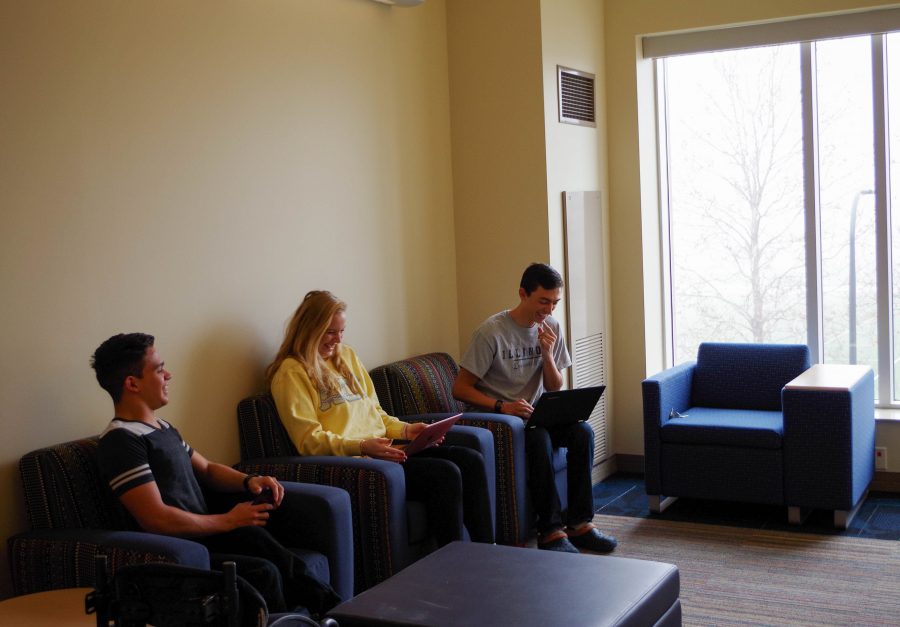University Housing contract limits students’ ability to opt out
Students spend time in the Wassaja Resident’s Hall lounge on Jan 16th.
Jan 17, 2017
Prior to October 2016, students living in residence halls had six months to opt out of their housing contract. Now, they only have 30 days.
In other words, if a student wants to change their housing plans, they now have 30 days to do so after signing their housing contract.
Alma Sealine, director of University Housing, said that the changes in contract were in fact not sudden, but have been devised throughout the fall semester.
“It has been a change that we have put together and have communicated to the residence hall students before housing signup started in October,” Sealine said.
She said that when reviewing their data, they found that several students were holding on to preferred spaces throughout the six month time frame for room reselection that other individuals did not have access to.
Get The Daily Illini in your inbox!
“We put together this process in order to still allow for a six month housing signup, but 30-day contract process in which after 30 days you are tied to the contract,” Sealine said.
Alexis Kahn, junior in Nursing, said that she sees the contract adjustments as a positive change.
“I know it’s what a lot of the other universities do,” Kahn said. “If it has already helped students choose housing, then it was a move in the right direction.”
The contract states that after the 30 days from signing, students are held to their contract terms and conditions. The settlement fee for opting out of the contract is 50 percent before the first day of the fall semester, and 75 percent after the first day of occupancy.
“This is still the most flexible contract process in the Champaign-Urbana area,” Sealine said. “With most off-campus apartments, once you sign that contract you are held to it, and if you cancel, the settlement fee is 100 percent.”
These contract changes were brought about by the University in response to different factors, the most important being student experience, Sealine said.
Students who currently live in residence halls have the advantage of resigning their lease and keeping their current room or choosing a different room before prospective residents.
Because students are now bound to the contract quicker, it provides flexibility for students searching for housing, Sealine said. With a longer opt-out period, some students were holding onto desirable spaces then eventually canceling their contracts and living elsewhere.
“We have found that we are actually trending ahead of where we were last year related to the housing sign up process,” she said. “So we believe that students are going to have more satisfaction in their housing choices because they had more flexibility from the moment that they chose to stay with University Housing.”
Approximately 70 percent of undergraduate students in residence halls are freshmen, and 30 percent are returning students.
Khan said that she personally prefers living in residence halls because of the more close-knit community it provides.
“You get to know a lot of different people, unlike in apartments where you only really see your roommates,” she said. “Residence halls are also safer and dining is more convenient, since the meals are already prepared for you.”
Khan said she believes that if you live in University Housing longer, you are more likely to graduate in four years.






